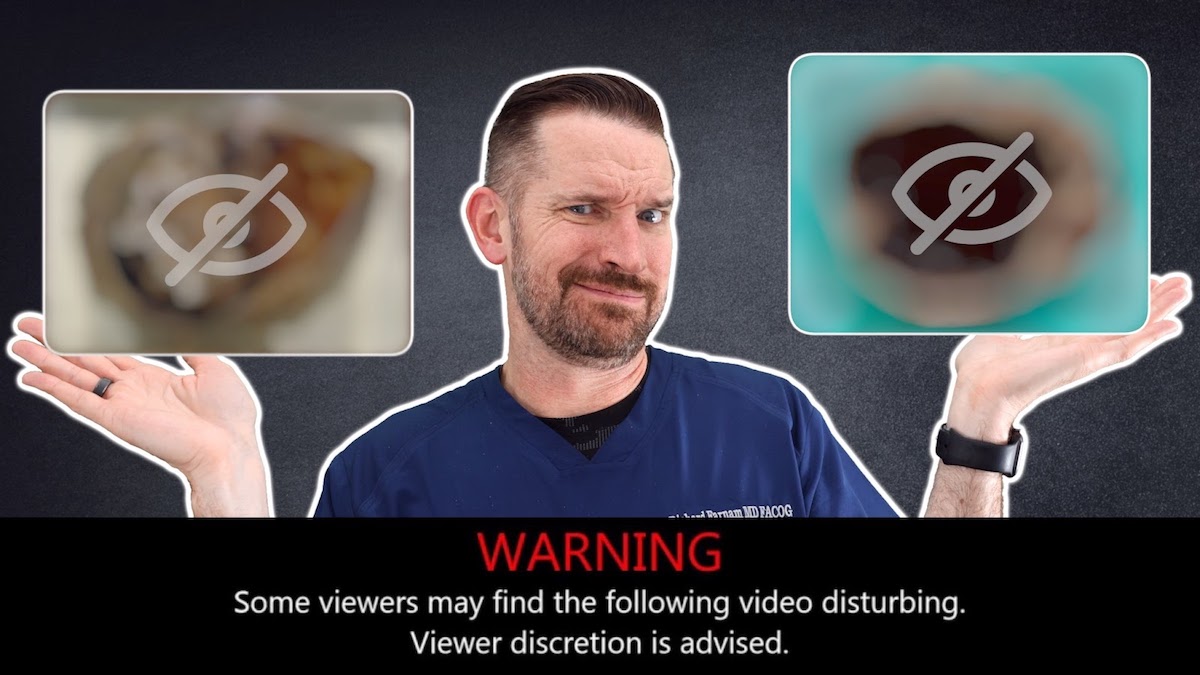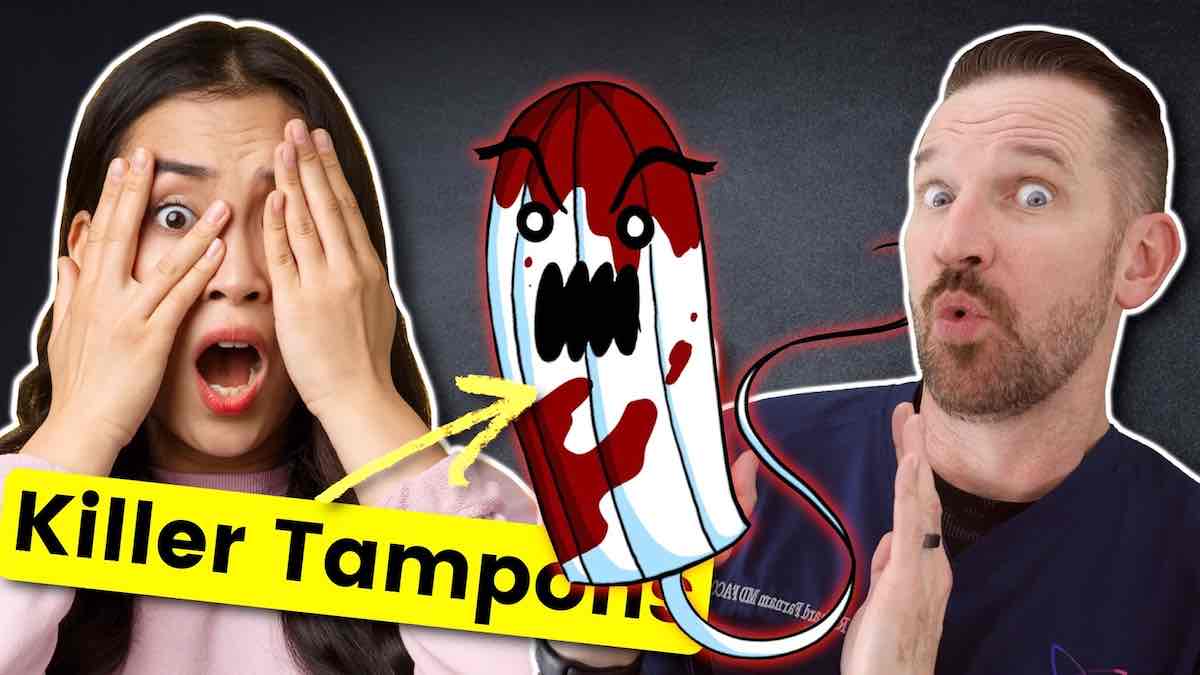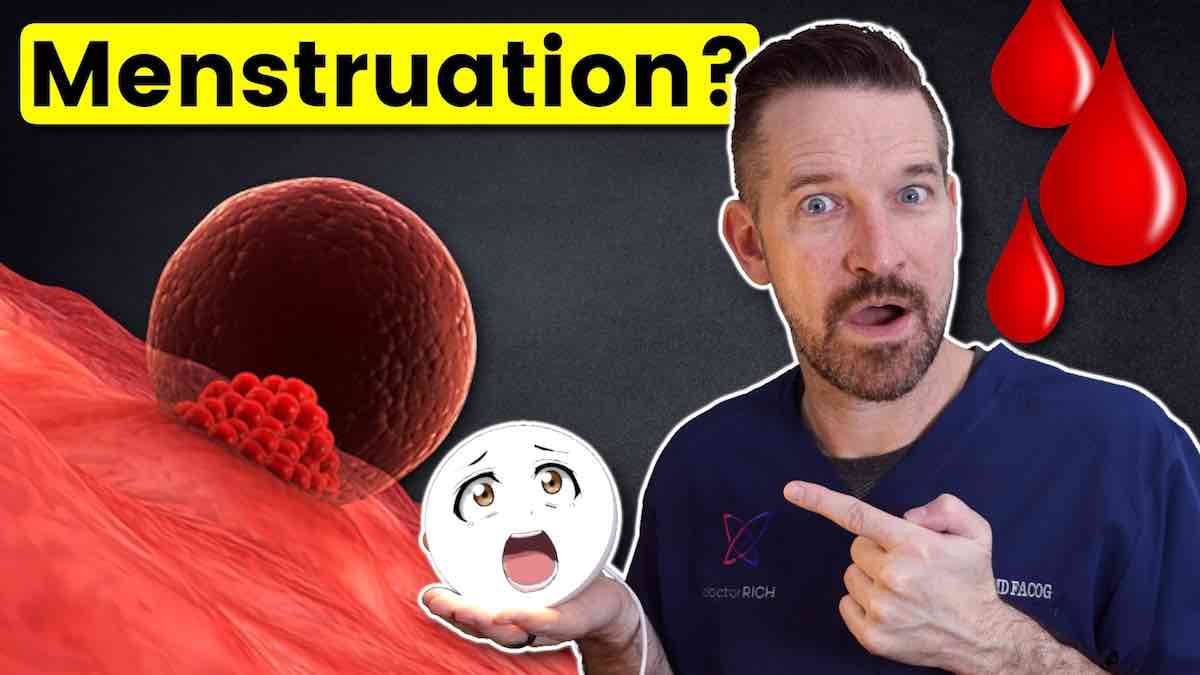Doctor Rich
Welcome back to the Doctor Rich channel. Today, we have Michelle back in the studio to give us an update about her hysterectomy story.
Michelle:
Yes. A year and a half later, I’m doing absolutely fantastic!
Doctor Rich:
We’re gonna ask Michelle the most commonly Googled questions about hysterectomy — including “How’s your sex life?” Stick around to the end to find out!
Don’t have time to read this post? Watch the video here instead!
Doctor Rich:
Hi, I’m Doctor Rich — and my passion is to provide every woman with practical knowledge about the world of women’s health. Today, we have Michelle back in the studio. She’s here to give us an update on her hysterectomy story. If you recall, she was here at about two months post-op. If you didn’t see that video, check that one out here.
So I get these questions every day in my practice. As it relates to hysterectomy, patients want to know, ”Am I going to go into menopause?” So a year and a half later, how are things going?
Michelle:
I’m a year and a half out, and I’m definitely NOT in menopause — I feel completely normal. I’m feeling great, fantastic — so none of that has happened.
Doctor Rich:
At twenty-five. That’s fantastic!
Michelle:
At twenty-five! That’s great!
Doctor Rich:
So of course we’re joking — but the average age of menopause is anywhere from forty-five to fifty-five (with the mean being fifty-one). So whether someone has hysterectomy or not — eventually the menopausal process will catch up with you and you’ll go through that transition. But it doesn’t happen as a result of the hysterectomy — so long as the patient retains the ovaries. So what are the expectations vs. reality based on what we discussed?
Michelle:
Well, I will admit that before I had the surgery done, there was definitely a concern whether I was going to go through menopause (like the day after surgery!) and get all these crazy hot flashes and just turn into somebody that I wasn’t the next day — but a year and a half later — thank goodness there’s no menopause on deck yet. I’m not having any hot flashes. I feel completely normal, actually — I feel great! So definitely debunked all those questions.
Doctor Rich:
So yeah — as long as the hysterectomy involves the removal of the uterus and not the ovaries (which for anybody who is premenopausal, the preferred option is to leave the ovaries behind if there’s no risk factors for ovarian cancer), there is no abrupt change and going into menopause (although that would happen eventually for all women at the natural age, which is fifty-one).
Michelle:
And you know, Doctor Rich — I think another huge question everybody’s concerned about (including myself) is weight gain after this. You hear a lot of rumors and theories that once you have a hysterectomy… You’re just gonna blow up and never come back. And I definitely have not seen that at all. You know, if you just stay healthy the way you were before the surgery, everything turns out fine.
Doctor :
That is a common question as well — about weight gain. If we look at virtually all patients on a timeline (at year one and then year five) and then you add birth control or you add hysterectomy,— there are women that are in the control group that haven’t had EITHER of those things — but all three will gain weight. So it happens as a confounder, independent of the intervention of the birth control or the hysterectomy. So it’s not the hysterectomy that causes that! Perhaps the one caveat is if a woman has the ovaries out as well, they get a lot of sleep disturbances because of the hot flashes. They’re tired, they’re fatigued, and they don’t get as much exercise. They could make bad healthy eating choices that could contribute secondarily — but not as a direct result of the surgery.
So another common question I get (really every day) is “If I have a hysterectomy, will my bladder fall out?” Now we talked about that. What was your concern about that? The expectation vs. reality?
Michelle:
Well, I do have to admit when you see that you’re having organs pulled out, you’re worried about the next ones falling through! But the good news… is mine has not fallen out! Nothing has fallen out, and I don’t think it will. So that is totally untrue. And like I said, I feel great!
Doctor Rich:
I’m glad everything’s in place. Um, so as a urogynecologist (or as a sub-specialty that deals directly with fallen bladders), we will tend to intervene to support the top of the vagina to prevent the bladder falling out — pretty much in every case (in every hysterectomy that’s done). Now, while it is true that the hysterectomy procedure is an independent risk factor for the future development of prolapse — as a urogynecologist, we suspend the top of the vagina during the surgery and that prevents that bladder from coming down. So you’re actually LESS likely to get bladder prolapse than if you had not had a surgery.
And now the question that everybody wants an answer to: How does hysterectomy affect your sex life?
Michelle:
But Doctor Rich — I think people wanna know about the recovery time. That was huge for me. So before you go into that huge question, I think we need to talk about recovery time — because it’s very crucial to a lot of working moms (even non-working moms). You don’t want to think that you’re gonna be in bed for a month! It felt like I was down for a split second — and I really was going to move faster than I should. So Doctor Rich told me to put on the brakes and just let my body heal a little bit. But I felt fantastic afterwards.
Doctor Rich:
You know, this is a really good point — because hysterectomy is not a hysterectomy is not a hysterectomy. It depends on how it’s done! A lot of doctors might not have the experience to do the robotic platform (which is what we did). And, you know — in their hands — the best and safest option is to do an open surgery. And if you have a good rapport with your doctor and it makes sense, that’s fine. But I will say that virtually every patient who needs a hysterectomy is a candidate for this type of surgery — which does provide a much faster recovery. And we’re talking, you know, two months for, like, a C-section (or up and down hysterectomy type) vs. two weeks…
Michelle
If that! And two weeks only because he told me to stay still for two weeks! But I really felt absolutely fine — up and walking around like the next day. So I don’t know if I’m supposed to say that or not, but that’s the truth,
Doctor Rich:
You know what… Weren’t you supposed to have an appointment yesterday for a follow-up?
Michelle:
I was… But I felt so good that I told the nurse that I wasn’t coming. So I was a no-show.
Doctor Rich [laughing]:
Okay — I guess we can waive your “no-show” fee.
Michelle
Okay. Thank you. Thank you. I appreciate that!
Doctor Rich:
And now the question everybody’s been waiting for! So does having hysterectomy affect the quality of sex, sex life, or sexual sensation and feeling? I know we talked about this before surgery — so again, what was the expectation compared to reality and how has that experience been?
Michelle:
So that’s a huge question that we’re all concerned about, especially being the female that’s having it done. You don’t want anything to change in that department — and I’m happy to report that nothing has changed at all! Not at all. You can ask my husband if you know him — it’s absolutely the same (if not better, because I’m not feeling bloated anymore like I was before my hysterectomy). All these other things that I was experiencing beforehand are gone. So my performance has probably kicked it up a notch, and I’m fine. I’m absolutely fine.
Doctor Rich:
Fantastic! I think it’s very important that our viewers hear that perspective from Michelle. Because I can (and I do) talk about the literature where there have been validated sexual satisfaction questionnaire studies where women get a survey beforehand and then get a survey after and fill it out — and women on average score higher. So that’s an improved quality of sexual function after hysterectomy! And I didn’t prompt you to say this — but it’s true because a lot of the symptoms that are causing the discomfort (the bloating, maybe pain from endometriosis) are negatively affecting the sex life. Those things are now gone. And, you know, patients are then allowed to just experience sex for sex!
Michelle:
Yes! Just the normal average cramps that you were used to when you were having your menstrual cycle or whatever — and that blows the whole romantic evening! There was a time when we were on a vacation and my husband called me shark bait because I was bleeding in the ocean. So, you know, all these things have been taken care of today. And I’m so happy to tell everybody that!
Doctor Rich):
Love you, [Michelle’s husband’s name bleeped out]!
Michelle:
He did $*#@ call me shark bait! We were in St. Thomas!
Cameraman [offscreen]:
You’re going to call him out on YouTube!
Michelle:
I am calling him out!
Doctor Rich:
Well, thanks for joining us so we can ask you questions about recovery, hot flashes, bladder prolapse, and sex — as it relates to having a hysterectomy. Again, I want to thank Michelle for coming back.
Michelle:
Thank you for having me; I appreciate it. And I love the job you did — I’m feeling great.
Doctor Rich:
Stick around for our next edition of the “Whisper Challenge!”




